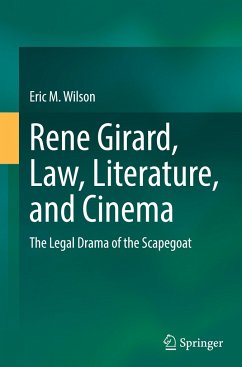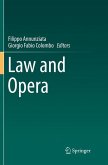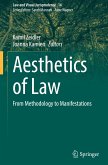This book is the first monograph to critically evaluate the work of the literary scholar René Girard from the perspectives of Law and Literature and Law and Film Studies, two of the most multidisciplinary branches of critical legal theory. The central thesis is that Girard's theory of the scapegoat mechanism provides a wholly new and original means of re-conceptualizing the nature of judicial modernity, which is the belief that modern Law constitutes an internally coherent and exclusively secular form of rationality.
The book argues that it is the archaic scapegoat mechanism - the reconciliation of the community through the direction of unified violence against a single victim - that actually works best in explaining all of the outstanding issues of Law and Literature in both of its sub-forms: law-as-literature (the analysis of legal language and practice exemplified by literacy texts) and law-in-literature (the exploration of issues in legaltheory throughthe fictitious form of the novel).
The book will provide readers with: (i) a useful introduction to the most important elements of the work of René Girard; (ii) a greater awareness of the 'hidden' nature of legal culture and reasoning within a post-secular age; and (iii) a new understanding of the 'subversive' (or 'enlightening') nature of some of the most iconic works on Law in both Literature and Cinema, media which by their nature allow for the expression of truths repressed by formal legal discourse.
The book argues that it is the archaic scapegoat mechanism - the reconciliation of the community through the direction of unified violence against a single victim - that actually works best in explaining all of the outstanding issues of Law and Literature in both of its sub-forms: law-as-literature (the analysis of legal language and practice exemplified by literacy texts) and law-in-literature (the exploration of issues in legaltheory throughthe fictitious form of the novel).
The book will provide readers with: (i) a useful introduction to the most important elements of the work of René Girard; (ii) a greater awareness of the 'hidden' nature of legal culture and reasoning within a post-secular age; and (iii) a new understanding of the 'subversive' (or 'enlightening') nature of some of the most iconic works on Law in both Literature and Cinema, media which by their nature allow for the expression of truths repressed by formal legal discourse.








